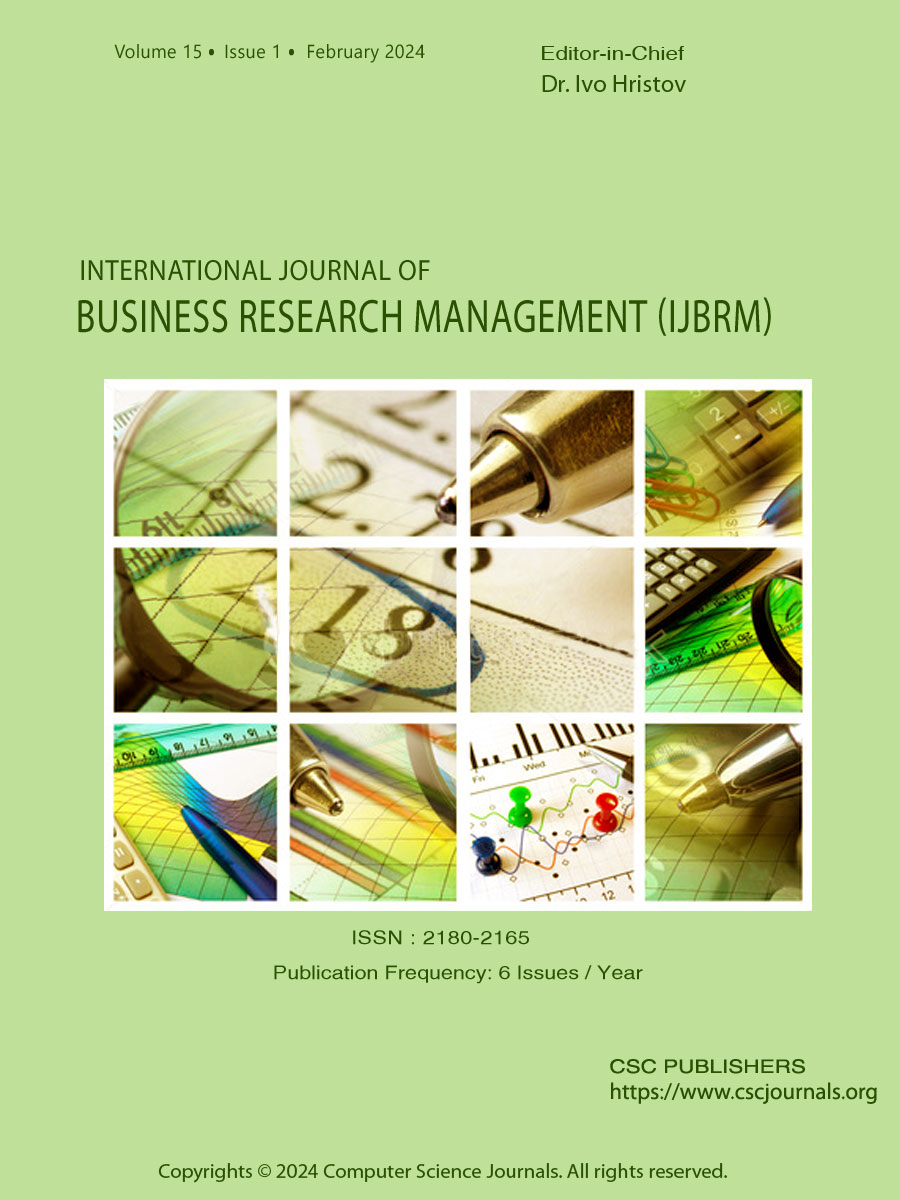Home > CSC-OpenAccess Library > Computer Science (General) > International Journal of Business Research Management (IJBRM)

International Journal of Business Research Management (IJBRM)
An International peer-review journal operated under CSC-OpenAccess Policy.
ISSN - 2180-2165
Published - Bi-Monthly | Established - 2010 | Year of Publication - 2025
|
|||||
| ARTICLE PROCESSING CHARGES (APC) TIER#1: $150 | TIER#2: $150. See more details. |
|||||

| HOME | About IJBRM | Editorial Board | Call For Papers/Editors | Instructions for Authors | Citation Report | Issues Archive | Subscribe IJBRM | |||||||||||||||
|
IJBRM SPECIAL ISSUE
|
